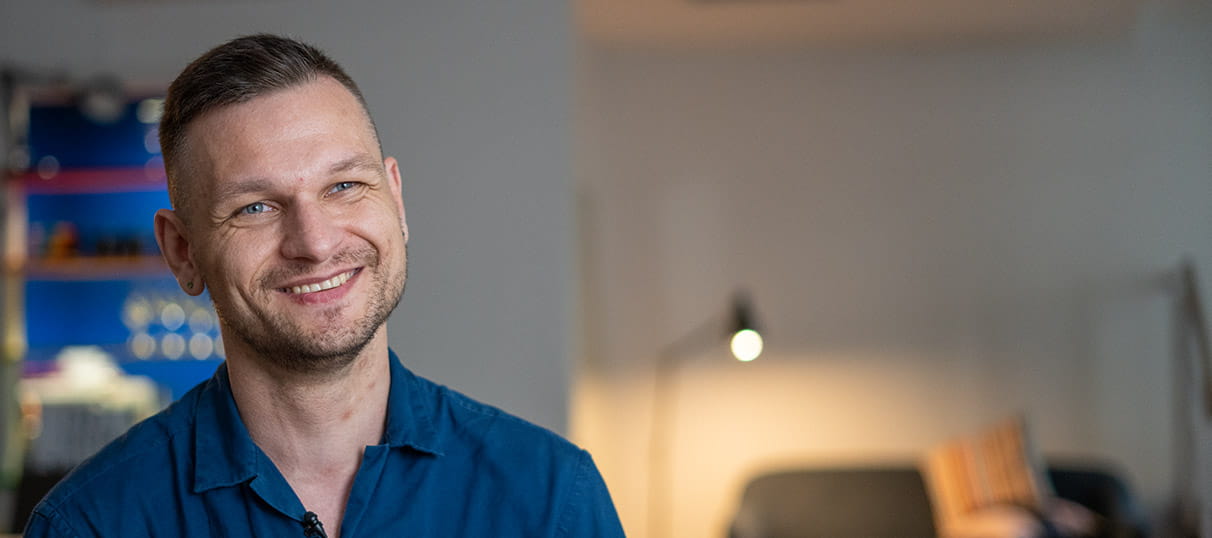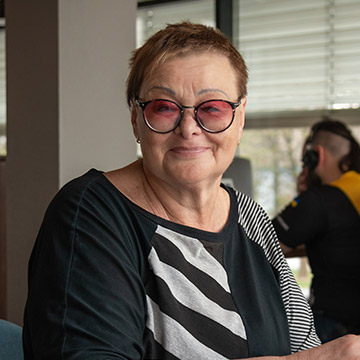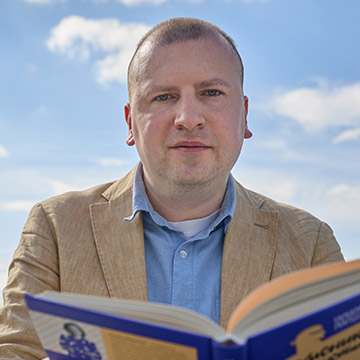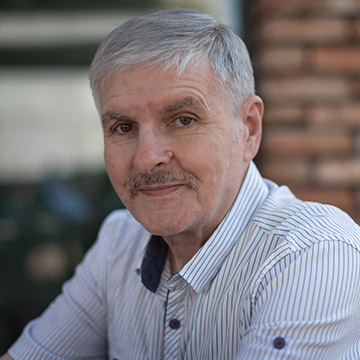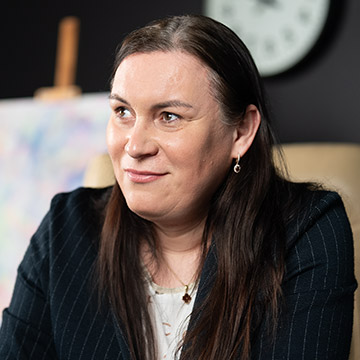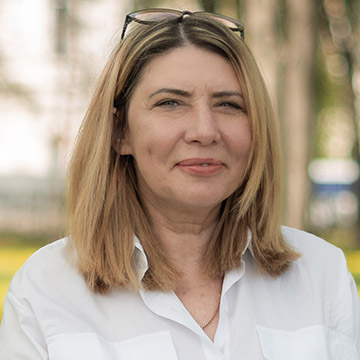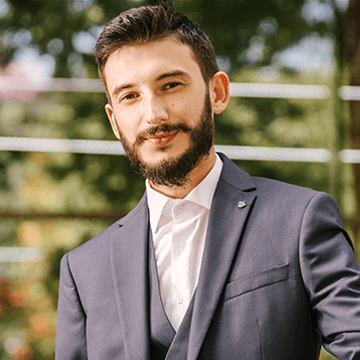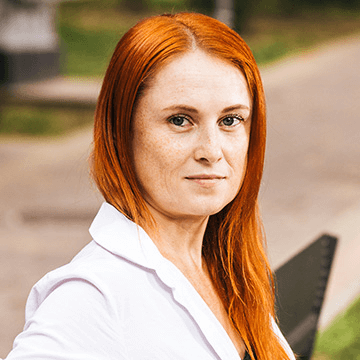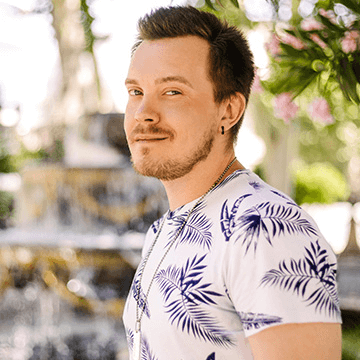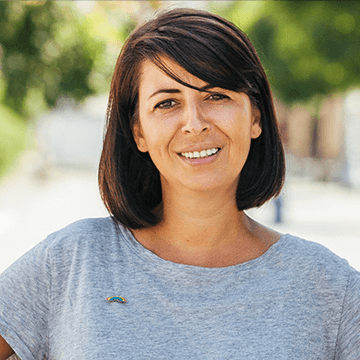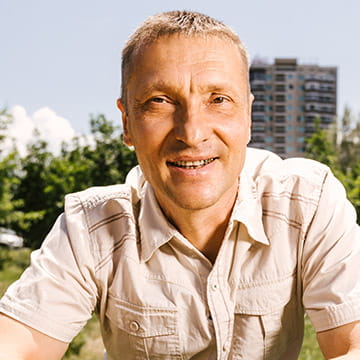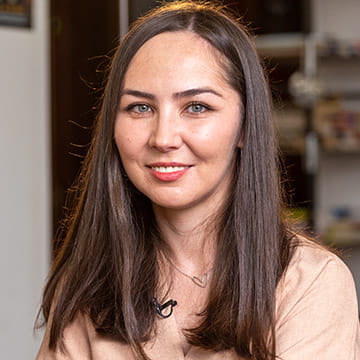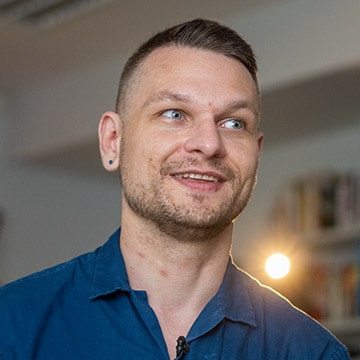Alex's STORY
Riga, Latvia
Alex, a member of the board at the Latvian non-governmental organisation (NGO), Mozaika, works to help reduce HIV prevalence both through education, by challenging existing narratives around the LGBTQ+ community and HIV / AIDS, and through connecting key populations to HIV healthcare services, including access to PrEP.
Alex said: “Through my work with Mozaika, I have noticed that a significant factor contributing to the HIV epidemic is a lack of understanding and awareness among the general population.”
Despite it being crucial to HIV prevention, PrEP is not currently part of Latvia’s HIV strategy. However, with support from RADIAN, Mozaika is working to create a sustainable model, which will improve access to and knowledge of PrEP in Latvia.
While there has been significant progress made globally to improve the acceptance of LGBTQ+ identities, significant discrimination persists in Latvia and the compounded stigma of HIV unfortunately exacerbates the challenges many in the community face. This makes it extremely difficult for many people to access a clinic for HIV healthcare services, such as testing, as they not only expose themselves to questions about their sexuality, but also risk the shame and discrimination they might face following a HIV diagnosis.
The most effective way to correct these beliefs, as Alex puts it, is through “education, education, education!” One of his biggest motivations is changing attitudes towards people living with HIV, sharing that he is “quite proud that [he] can talk to people who are initially cold or confronting and show them that HIV is not something that can be contracted from a hug, and it is no longer a death sentence.” Opening a dialogue and having the opportunity to teach people the facts relating to the epidemic is one of the most rewarding parts of Alex’s job.
Through my work with Mozaika, I have noticed that a significant factor contributing to the HIV epidemic is a lack of understanding and awareness among the general population.
Strengthening the LGBTQ+ community in Latvia is a primary goal of Mozaika’s work and the organisation is devoted to ensuring access to HIV and sexually transmitted infections (STI) prevention and treatment. HIV disproportionately affects key population groups, such as sex workers, people who inject drugs, MSM and transgender women. Developing inclusive cross-sectoral policies and programmes that support everyone is a large component in strengthening the country’s HIV response.
Mozaika is a force for change in Latvia, and they work incredibly hard to offer a safe space for some of the most marginalised populations in the country. ‘PrEP Riga’ is one of their many projects aimed at the LGBTQ+ community to address the HIV epidemic there.
“Since starting the program, we have been able to reach more people, organisations, health professionals etc. through launching the webpage and social campaigns to share information. It has got us talking about PrEP for HIV and opening conversations about other STIs too,” Alex says. The domino effect of changing just one person’s understanding of HIV, how it can be prevented is what makes the work at Mozaika so impactful.
“We need to start talking about HIV just like we’d talk about COVID-19, flu, or any other infection. Destigmatising and providing reliable information about HIV/AIDS treatment and prevention is the only way,” Alex argues. There is a long way to go until we see cases in EECA dropping to zero, but it isn’t out of reach with the tools we have. “An epidemic somewhere is an epidemic everywhere,” and the collective efforts of local organisations play a significant role in the global effort to end HIV and AIDS.
The impact of RADIAN on Alex’s work
With the support of RADIAN, Alex and the team at Mozaika are expanding their work to promote and increase HIV prevention services. With funding from the partnership, Alex says the organisation “can reach out to more people, increase engagement and further education on the topics that surround HIV and the key populations it impacts.”
-
1.
In Danger: UNAIDS Global AIDS Update 2022, Figure 12.2, Distribution of acquisition of new HIV infections by population and sex (aged 15–49 years), eastern Europe and central Asia, 2021 [Accessed: October 2023]
-
2.
HIV/AIDS surveillance in Europe 2021 (2020 data), European Centre for Disease Prevention & Control, World Health Organisation [Accessed: October 2023]



